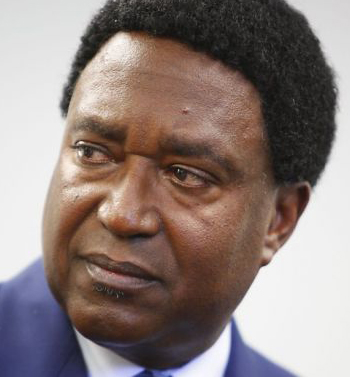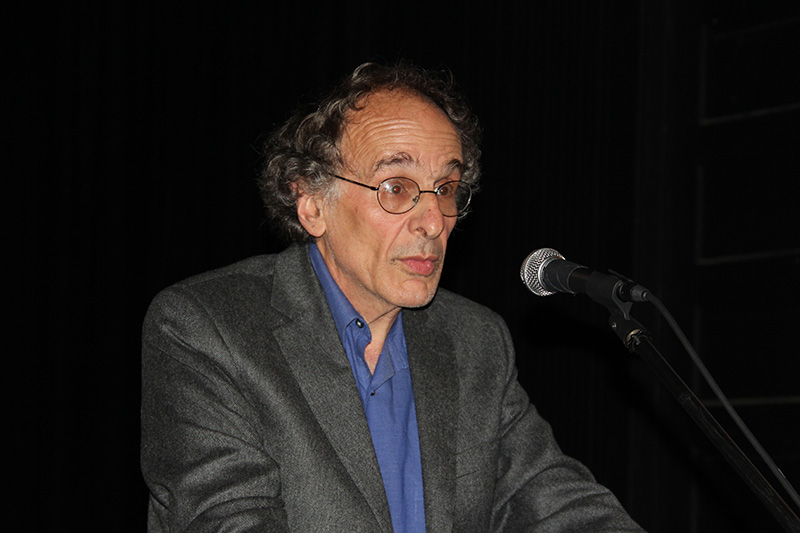Attorneys Burris and Chanin Meet with Community to “Sustain” Police Accountability
Jul 25, 2014
Posted in Equal Rights/Equity, Police-Public Safety
By Ken A. Epstein
Two leading local civil rights attorneys, John Burris and Jim Chanin, met this week with community members who belong to an Oakland police accountability coalition that is seeking ways to improve oversight of police and sustain reforms that have been achieved over the last 12 years while the Oakland Police Department has been under federal court supervision.
Burris and Chanin were two of the main lawyers who helped develop the Negotiated Settlement Agreement (NSA) with the federal court and the City of Oakland and have been involved in its implementation since the beginning.
The NSA is likely to be winding down and may end within next few years, the attorneys have said.
“There needs to be some accountability. Some kind of continued review has to occur,” said Burris, agreeing with community concerns that OPD could backslide once the department is no longer under court supervision.

“The number one issue is the racial profiling issue,” said Chanin. “That’s why we started the NSA to begin with. It was not clear at the beginning that this was the massive kind of systemic failure that it turned out to be – of an amazing and horrible nature,” he said.
“We thought it would never end, but now it’s clear that (the NSA) will end,” Chanin said. In the last few years, there has been significant progress, including a reduction in the number of officer involved shootings, he said.
In the past, he said, officers had resisted turning on lapel video recorders when making arrests, but now do so after they heard directly from commanders that they would face dire consequences if they fail to activate their recorders.
There are now early warning systems for police misconduct in place, said Burris, “But none of it works if you don’t do anything about it. Ultimately, what counts is the integrity of the people at the top,” he said.
Praising Burris and Chanin for making a “heroic” commitment to the people of Oakland, community members talked about their ongoing concerns about police accountability.

Attorney Yolanda Huang mentioned the persistent difficulties she faces when representing criminal defendants. “(Written) police reports are inaccurate to the point of wondering if they are falsehoods,” she said, also complaining of photo lineups, “which Oakland police do terribly.”
“We want effective public oversight, that is transparent,” said community activist Paula Hawthorn.
Before federal oversight ends, “There must be some structural change the city must commit to,” said Rashidah Grinage of People United for a Better Life in Oakland (PUEBLO).
“At some point, the city will petition the judge to vacate this judgment,” Grinage said. At that point, the court needs to say, “The city is not in full compliance until it has made a commitment to assure that the compliance will be sustainable and ongoing,” enacting something like an independent police oversight commission, she said.
Chanin said that he was surprised when he and Burris were originally picked to be involved in the NSA.
“They limited our salary to $5,000 a year for the first five years. I believe they thought we would not actually go through with it,” he said, pointing out that he would receive $5,000 for his fee in January and then work February through December for free.
The Negotiated Settlement Agreement can be traced back to the Allen v. City of Oakland federal civil lawsuit, which began in December 2000 when Chanin, Julie Houk and Burris became involved in what they saw as a pattern of civil rights abuses by members of OPD in what became known as the “Riders” scandal.
Eventually, 119 individual plaintiffs, almost all African American, joined the lawsuit. Their claims involved many constitutional violations, including false arrests, unreasonable seizures, false imprisonments, the planting of evidence, excessive use of force, falsification of police reports, racially biased policing and kidnapping.

Criminal cases were brought by the District Attorney’s Office, but many of these cases were dismissed or overturned.
The plaintiffs in the lawsuit settled with the city for $10.5 million. The city also agreed to enact and implement institutional reforms by means of a non-monetary settlement agreement, the NSA, to prevent the recurrence of the civil rights violations that gave rise to this litigation and to bring OPD in line with professional policing practices.
The product of more than a year of negotiations between plaintiffs, the city and OPD, the NSA became a federal court order in January 2003.